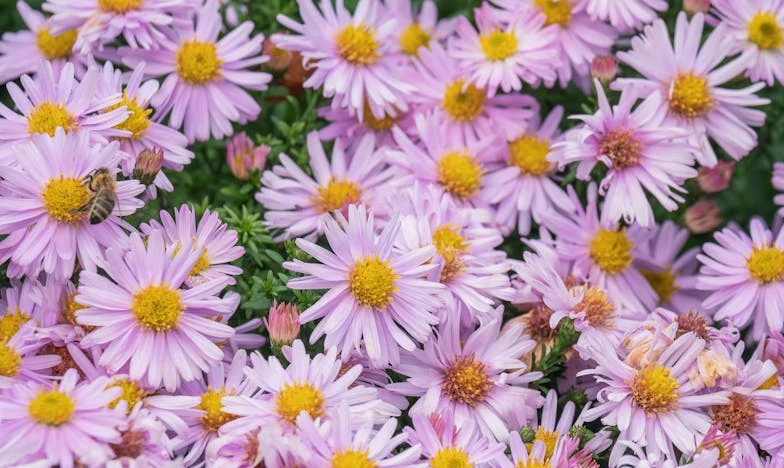Bouquet of Daisies in November
“Do you see those flowers out there, Mom?” I whispered, my breath fogging the frosty glass as I pressed my forehead to the window. The backyard looked like a faded photograph—the grass brittle beneath a crust of morning frost, the maples holding on to the last scraps of gold. November always felt like the world was holding its breath, waiting for something to end. I felt it, too. I wrapped my robe tighter, but the chill stuck to my skin.
Behind me, I heard the slow shuffle of slippers and the rattle of a pill bottle. My mother was awake—I could tell by the smell of peppermint tea and the sound of her coughing. Since her diagnosis, every morning was a negotiation: how much pain she could hide, how long she could keep pretending nothing had changed.
“Kelsey, are you up already?” Her voice was thin, uncertain, as if she was afraid of waking up in a world where she was sick.
“Yeah, Mom. Just checking the weather,” I lied, forcing brightness into my tone. I turned to see her hunched in her armchair, a wool blanket around her shoulders. She looked so much smaller these days, as if the cancer was shrinking her from the inside out.
“You don’t have to stay home, honey. You should go to work. I’ll be fine.”
I glanced at the clock. 7:10. My husband, Matt, would be in the shower, prepping for another twelve-hour shift at the ER. I didn’t know if I envied him for escaping or resented him for leaving me here with the slow disintegration of my mother and my own growing sense of helplessness.
“I took the day off. We can watch a movie,” I offered, sitting beside her and tucking the blanket tighter. She smiled, but her eyes drifted back to the window.
“Did you see the bouquet on the porch?” she asked suddenly. “Wildflowers. In November. Can you believe it?”
I frowned. I hadn’t noticed. I walked to the front door, and there it was—a glass jar filled with daisies, asters, and goldenrod, their colors bright against the gray day. No note, just the stubborn cheer of flowers that had no business blooming this late.
“Who left them?” I wondered aloud, trying to remember if any of our neighbors were the type for anonymous kindness.
Mom only shrugged, but there was a spark in her face I hadn’t seen in weeks. “Maybe it’s a sign. Maybe the world isn’t as cold as it feels.”
I wanted to believe her. I carried the bouquet inside, setting it on the kitchen table where the sun, what little there was, could find it. The scent was earthy, hopeful. For a moment, the house felt less like a waiting room for bad news.
Later that morning, Matt came down with his travel mug and tired eyes. He looked at the flowers, then at me, and sighed. “You didn’t sleep again, did you?”
“I’m fine,” I lied. He didn’t push. He never did—just kissed my forehead and left, closing the door on another day we’d pretend everything was normal.
The hours blurred. Mom dozed on and off. I washed dishes, sorted medications, answered polite but distant messages from my sister, Lauren, who lived two states away and always had a reason she couldn’t visit. I tried to read, but the words swam. Every so often, I glanced at the bouquet, as if it might whisper a secret if I looked long enough.
By afternoon, the sky darkened. The doorbell rang, and I found Mrs. Wallace from next door standing on the porch, her arms full of groceries.
“Thought you could use some soup,” she said, scanning my face for cracks.
“Thank you,” I managed, surprised by the lump in my throat. She lingered, her hand on my shoulder.
“It’s hard, what you’re doing. Don’t forget to take care of yourself, too.”
I wanted to laugh at that. How? How do you take care of yourself when the person who taught you how to be strong is fading? But I nodded, promising I’d try.
That evening, after Mom fell asleep, I sat in the dim kitchen, staring at the wildflowers. My phone buzzed—a text from Matt: “Late shift. Don’t wait up.” I closed my eyes, feeling something inside me snap. I was angry—at him, at Lauren, at the universe for making my mother’s body betray her. For making me carry it all alone.
I didn’t know when I started crying, just that it was silent, desperate. I pressed my fingers to the petals, needing their stubborn life. I thought about everything I’d lost: the easy confidence in tomorrow, the comfort of a mother’s hug, the certainty that love—real, lasting love—could survive anything.
When the sun rose, I found Mom awake, her hand resting on the bouquet. She smiled, weak but genuine.
“They’re still beautiful, even now. Don’t forget that, Kelsey.”
I wanted to believe her. I wanted to remember how to hope.
So I ask you—have you ever found something beautiful in the middle of your darkest season? Or are we all just waiting for spring, hoping the cold won’t last forever?
